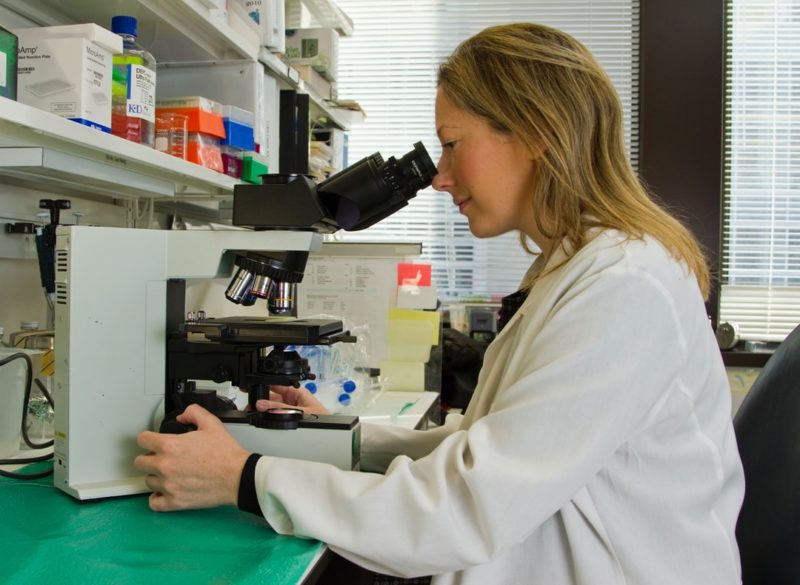Living with Polycystic Ovarian Syndrome (PCOS) is tough. I’ve been through it and know how hard it can be. But, there is hope. A specific nutrition plan for PCOS can help you feel better. It can improve your symptoms and well-being.
When I learned I had PCOS, I was lost. I felt like I didn’t know how to handle it. But, learning about food and hormones changed everything. I saw I could make a difference in my health.
I changed my diet and saw amazing changes. Adding certain foods, managing my insulin, and going for anti-inflammatory choices helped a lot. My symptoms improved, and I felt in control again.
I know every woman with PCOS can better her health with the right food. Eating nutrient-rich foods and using PCOS recipes works wonders. By planning your meals carefully, you can feel a lot better.
This article will show you the basics of a PCOS diet. We’ll talk about which foods are best. And we’ll help you make lifestyle changes for a healthier future. Let’s make PCOS a part of our strong health journey.
Key Takeaways:
- Embracing a tailored PCOS nutrition plan can have a profound impact on managing symptoms and improving overall health.
- Hormone-balancing foods, managing insulin resistance, and adopting an anti-inflammatory approach are key components of a successful PCOS nutrition plan.
- By nourishing your body with nutrient-dense foods, incorporating PCOS-friendly recipes, and practicing mindful meal planning, you can take control of your health and well-being.
- Optimizing your PCOS nutrition plan is a journey, and with patience and dedication, you can achieve a higher quality of life.
- By working together and supporting one another, we can overcome the challenges of PCOS and thrive on our path towards optimal health.
Understanding PCOS and Its Symptoms
PCOS, or Polycystic Ovarian Syndrome, affects many women with its hormonal changes. It brings a mix of symptoms, yet the causes are not fully known. Seeking help from doctors is key if you think you have PCOS. They can confirm the condition and find what’s unique to you.
PCOS shows itself in many ways. You might notice changes in your period, find it hard to get pregnant, or see more hair where you don’t want it. Skin problems and gaining weight can also happen. But remember, not every person with PCOS will have all these signs.
One clear sign of PCOS is not having regular periods. Your cycle might be too long or too short, making it hard to know when to expect it.
Getting pregnant could also be difficult if you have PCOS. This comes from not releasing eggs regularly.
Another issue is too much hair in places like the face or chest. This happens because of high levels of male hormones in women with PCOS.
Your skin might get oilier than usual. This can cause acne, making your skin look and feel greasy.
PCOS often goes along with putting on weight, especially around your belly. Your hormones being out of balance are partly to blame for this.
The heart of PCOS is these imbalanced hormones. Keeping these in check can help with the symptoms and other health problems it may cause.
The Role of Diet in PCOS Management
Diet is key in tackling PCOS symptoms and fixing hormone levels. This condition often brings high amounts of male hormones and a problem with handling insulin. A diet rich in fiber and light on sugar can help manage these issues. This approach aids in stabilizing blood sugar, boosting insulin function, and dropping pounds. These are all important for easing the effects of PCOS.
Eating right can also play a big part in overcoming insulin resistance. Foods with a low glycemic index, such as some whole grains and many veggies, can steady blood sugar. They can also cut down on insulin resistance. Plus, don’t forget about lean proteins, like chicken without the skin, fish, tofu, or lentils. They, too, can help make the body more responsive to insulin.
The Impact of Androgen Production
PCOS often sees too much androgens being made. These are male hormones that can lead to things like pimples, hair where you don’t want it, and more. A balanced diet with lots of colorful fruits and veggies may lessen these effects. These foods fight inflammation and stress, which are linked to high androgen levels. And don’t overlook flaxseeds, they’re great for keeping androgens in check.
Regulating Hormone Levels
Getting hormone levels right is crucial for those with PCOS. Foods that help balance hormones, like broccoli and Brussel sprouts, are important. Omega-3 fats found in fish, flaxseeds, and walnuts also aid in this balance.
Moreover, dropping some weight can do wonders for hormone health and PCOS symptoms. Aim for a steady loss by choosing a diet that’s both healthy and keeps you full. Shedding 5-10% of your weight is an achievable goal with big payoffs for PCOS.

Facts to Know About PCOS
Polycystic Ovarian Syndrome (PCOS) is a common yet complex condition affecting 1 in 5 women. It is a top cause of infertility among women.
Both genetic and environmental factors can lead to PCOS. While genes play a role, a sedentary lifestyle and too much alcohol can also be factors.
Diagnosing PCOS requires examining symptoms and specific tests. Contrary to what the name suggests, having cysts on the ovaries isn’t a must. Healthcare experts look at things like irregular periods and hormone imbalances to make a diagnosis.
Obesity often links with PCOS due to issues like insulin resistance. These can make it hard for those with PCOS to manage their weight.
Knowing the facts about PCOS is vital. It can help people get the right diagnosis, treatments, and make lifestyle changes.
Next, we’ll look at the importance of a strong support team for managing PCOS symptoms effectively.
Building Your PCOS Support Team
Managing PCOS is best done with a team. You should include healthcare experts who know about PCOS. This team could have:
- Primary Care Physician (PCP): Your PCP is your first stop for general health issues. They will also help in planning your PCOS treatment.
- OB/GYN: This specialist focuses on women’s health. They can help deal with PCOS issues like irregular periods and fertility worries.
- Endocrinologist: An endocrinologist knows about hormone problems. They help fix the hormone issues linked to PCOS.
- Nutritionist: A nutritionist who knows about PCOS can guide you with a good PCOS diet. They help pick foods that balance hormones and manage symptoms.
By teaming up with these PCOS experts, you get all-around care. They work together to make a plan that fits your exact needs and goals. You are not alone in dealing with PCOS. Your support team will be there for you at every turn.

The Basics of a PCOS Diet
A well-planned diet is crucial for managing PCOS. You can design your diet to support hormonal balance and good health. We’ll go over some key basics to help you plan a diet that suits your needs.

Include High Fiber Carbohydrates
For PCOS, focus on high-quality, high fiber carbs. These are things like whole grains, legumes, plus fruits and veggies. They give you important nutrients and keep your blood sugar steady. By slowing how fast carbs are digested, they prevent blood sugar spikes. This is key for those with PCOS and insulin resistance.
A Balanced Diet for Hormone Balance
A balanced diet is key to easing PCOS symptoms. It should have lean proteins, good fats, whole grains, and lots of fruits and veggies. These foods are packed with vitamins and minerals. They support your hormones and keep you healthy.
Regular Meal Times and Small Meals
Eating at regular times keeps your energy and blood sugar stable. Try for three main meals and a few snacks daily, spread out evenly. This keeps your blood sugar from ups and downs, which is good for your hormones and avoids overeating.
Incorporate Nutrient-Rich Foods
Focus on foods full of vitamins and minerals for your PCOS diet. Think leafy greens, berries, avocados, oily fish, nuts, and seeds. These foods boost your health and help regulate your hormones. They’re crucial for managing PCOS.
Following these diet tips is a big step to manage PCOS and boost your health. Remember, every step forward counts.
For more help with PCOS diet and nutrition, read the nutrition for PCOS article by Mass General Brigham.
Recommended Foods for PCOS
A PCOS-friendly diet is key for managing symptoms and staying healthy. It’s important to eat lots of fruits and vegetables. They provide nutrients that help control blood sugar and reduce swelling. This can make PCOS symptoms better.
It’s key to include lean proteins in your meals. These are found in foods like chicken, turkey, and tofu. They give your body the right amino acids. This helps balance your hormones and boost your metabolism.
Pulses, like lentils and chickpeas, are full of fiber and protein. They don’t quickly raise blood sugar. Plus, they bring important minerals like iron and potassium to your diet.
Whole grains are great for PCOS too. Options such as brown rice and quinoa are very high in fiber. They help with digestion and keep your blood sugar steady. Eating whole grains gives you a steady flow of energy every day.
Adding healthy fats is also important. Avocados, nuts, and seeds can help with hormone balance. They can also lower inflammation. Using these fats in your diet in the right amounts is good for your health.
Soy protein may be good for those with PCOS. It can help manage estrogen levels. Good sources are tofu and tempeh. They’re strong alternatives to animal proteins.
Spices not only make your meals tasty but also healthy. Turmeric, cinnamon, and ginger can lower swelling. You can add these spices to dishes or drink them in teas.

By eating a variety of PCOS-friendly foods, you can feel better and healthier. From fruits and veggies to proteins, fats, and grains, each type of food helps your hormones and well-being. Spice up your diet with healthy choices.
Research proves that a PCOS-friendly diet makes a big difference. It can lower blood sugar, reduce swelling, and get your hormones in balance. Choosing the right foods gives you power over your health and a path to a brighter future.
Limiting Inflammatory Foods for PCOS
PCOS sufferers should watch the kind of foods they eat. Some foods can make insulin resistance and inflammation worse. By choosing what they eat carefully, they can help their body feel better.
Inflammatory foods are those that make PCOS signs worse. It’s important to avoid certain food types:
- Sugar-sweetened drinks: these are drinks with added sugars, like sodas and fruit juices.
- Alcohol: too much alcohol can cause inflammation and disrupt hormones.
- Sugary foods: this includes desserts and sugary snacks, which can spike blood sugar and insulin levels.
- Refined carbs: these are foods made from refined grains, such as white bread and pasta. They can cause quick changes in blood sugar.
- Fried foods: deep-fried meals are rich in unhealthy fats and cause inflammation.
- Saturated fat: think butter, full-fat dairy, and fatty meats. They add to inflammation and insulin issues.
- Red meat: eating a lot of red meat can up inflammation and mess with hormones.
- Processed meats: includes deli meats and sausages, which are full of preservatives that cause inflammation.
Choosing healthier foods is key to managing PCOS. Eat lots of fruits, veggies, lean meats, whole grains, and good fats. This can balance hormones and make you feel better.
Getting used to a PCOS-friendly diet takes time. It’s important to see what food plan works for you. Stay away from foods that make PCOS worse. Eating mindfully can help manage symptoms and boost health.

For more on PCOS and what to eat, check this info by Johns Hopkins Medicine.
Meal Timing and Sleep for PCOS Management
Managing PCOS means paying close attention to meal timing and sleep patterns. These help keep your energy steady, manage blood sugar, and improve sleep. Making these parts of your life better will help with PCOS symptoms.
Eat small, balanced meals all day if you have PCOS. This keeps your energy even and stops sudden blood sugar changes. Focus on foods like lean protein, whole grains, fruits, and veggies. Spread your meals out, especially before you get really active. This keeps your energy stable and stops you from feeling too hungry.
Different meal times can help keep blood sugar under control. Eating at the same times every day can balance insulin and hormones. Try to have your biggest meal earlier. This might help lower insulin resistance.
Sleeping properly is key for PCOS management, too. Our bodies work best when sleep and wake up times are the same every day. A regular bedtime routine and a cozy, quiet sleeping space can help.

Getting enough quality sleep can really help with PCOS. Good sleep helps with hormone balance, which affects how you eat, digest food, and use insulin. Better sleep might make you feel happier, more energetic, and help with PCOS symptoms.
Avoiding Fad Diets and Establishing Sustainable Habits
Dealing with PCOS can bring many diet trends promising quick results. It’s best to stay away from these quick fixes. Instead, focus on adopting lasting, healthy habits for your well-being. Getting personalized nutrition advice from health experts is key. It helps create a nutrition plan that’s both effective and sustainable.
Fad diets might seem tempting with their quick fixes for weight loss or hormone balance. Yet, they often have no solid science behind them. They also don’t deal with the real issues of PCOS, may lack vital nutrients, and are hard to keep up. Opting for healthier habits is the better path. These lead to permanent benefits and better health overall.
Wondering what habits are good for managing PCOS? Here are some to consider:
1. Eat a Balanced Diet:
Steer clear of harsh or limiting food plans. Instead, opt for a balanced diet. This should include a mix of nutritious foods like fruits, veggies, lean meats, grains, and good fats.
2. Practice Portion Control:
Be mindful of how much you eat and stop when you’re full. This approach can keep your weight healthy and reduce the risk of insulin issues.
3. Prioritize Regular Physical Activity:
Find an exercise you enjoy, whether it’s walking, biking, or dancing. Working out helps balance hormones, control weight, and boosts your well-being.
4. Manage Stress Levels:
Stress can make PCOS symptoms worse. Try stress-busting activities like yoga or hobbies you love. These can make a big difference.
5. Get Adequate Sleep:
Making sleep a priority is vital. Try to get 7-9 hours of quality sleep each night. It’s important for balancing hormones and staying healthy.
By adopting these healthy habits, you take an active stance in battling your PCOS. Remember, sustainable change happens over time. So, give yourself the time you need. And remember, any progress is something to celebrate.

Conclusion
Managing PCOS with the right diet is crucial. It helps control symptoms, balances hormones, and boosts health. A balanced diet with lots of nutrients can really help. This, along with watching blood sugar levels, exercising, and managing stress, is key.
It’s vital to work with health experts like your primary care doctor and gynecologist. They can also include an endocrinologist and nutritionist in your team. These professionals will help create a plan just for you. This plan will help you meet your specific goals and deal with your unique symptoms.
No single way works for everyone with PCOS. It takes daily work, but it’s worth it. Focus on eating well, moving regularly, and caring for yourself. This way, people with PCOS can lead healthier lives and feel better.
Use the following HTML tags:














